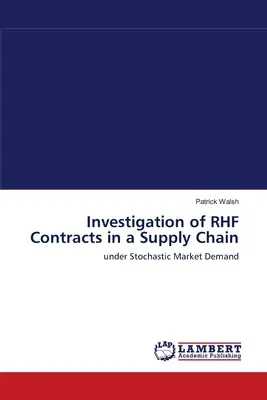Patrick Walsh
(Author)Investigation of RHF Contracts in a Supply ChainPaperback, 21 May 2010

Qty
1
Turbo
Ships in 2 - 3 days
In Stock
Free Delivery
Cash on Delivery
15 Days
Free Returns
Secure Checkout
Print Length
288 pages
Language
English
Publisher
LAP Lambert Academic Publishing
Date Published
21 May 2010
ISBN-10
383831476X
ISBN-13
9783838314761
Description
Product Details
Author:
Book Format:
Paperback
Country of Origin:
US
Date Published:
21 May 2010
Dimensions:
22.86 x
15.24 x
1.65 cm
ISBN-10:
383831476X
ISBN-13:
9783838314761
Language:
English
Location:
Saarbrucken
Pages:
288
Publisher:
Weight:
426.38 gm

